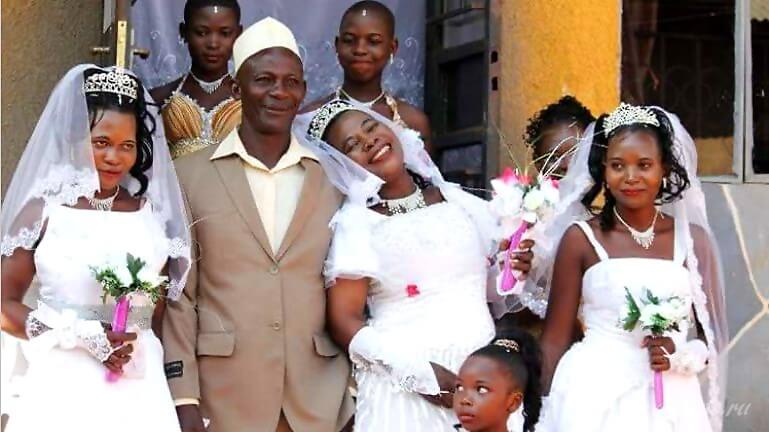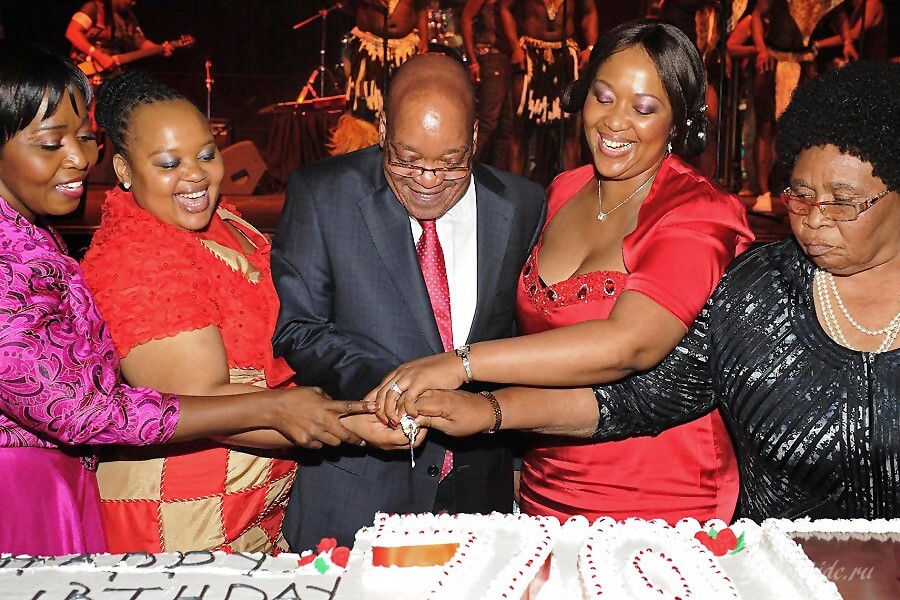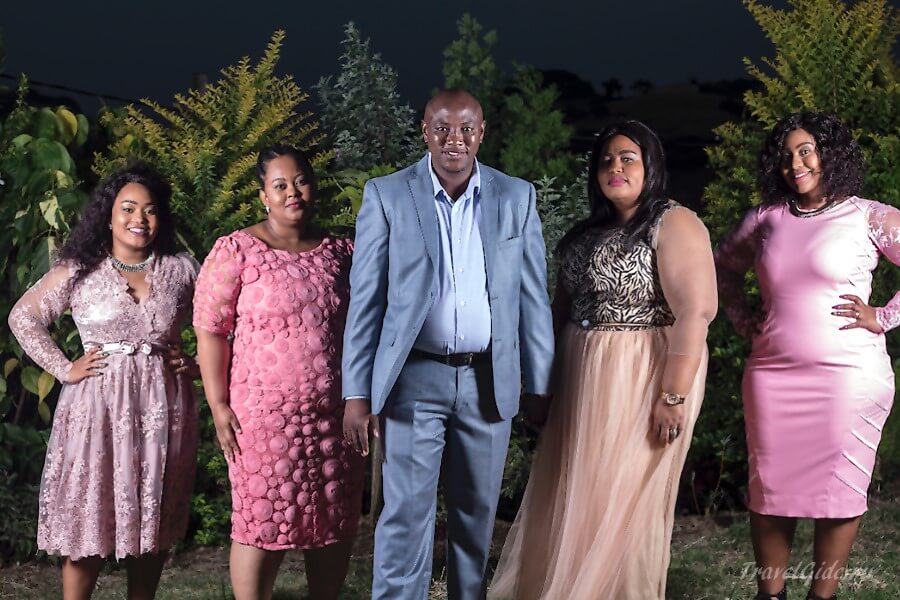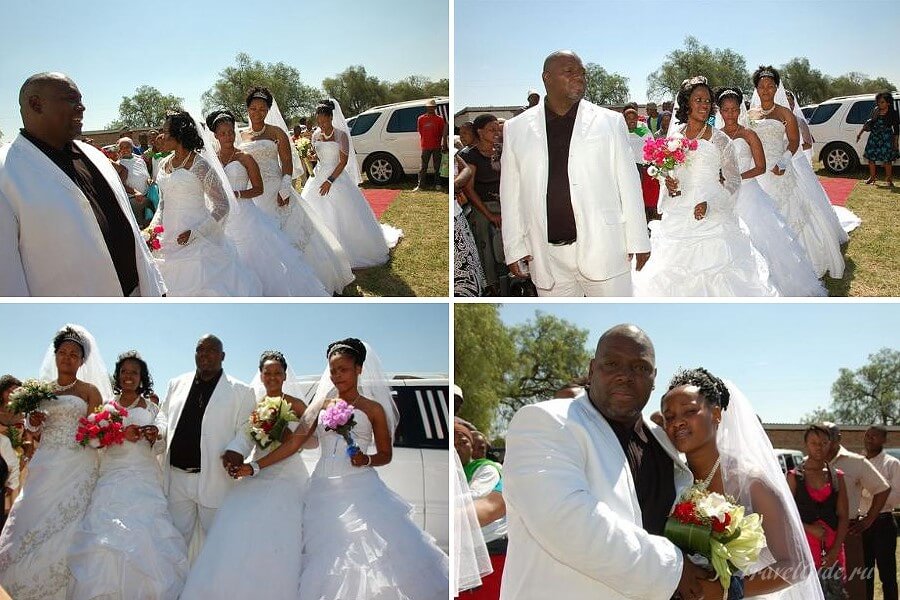
MCan a country be rich and poor at the same time? As liberal as it is fundamental? Developed and at the same time backward? Or, having collected all the questions together, to idealistically care for the rights of its citizens, while violating the basic principles of social equality? It turns out, yes - because the Republic of South Africa is such a country. We will not dwell on the issues of poverty or the level of economic development of South Africa. Let's focus on the cultural and social aspect, because it is against this background that there are many contradictions and surprises, for example, polygamy.
Exemplary Constitution and specific "cultural characteristics" of South Africa
Let's start with the fact that South Africa has an exemplary constitution. It was adopted after the fall of apartheid on the basis of the constitutions of democratically developed countries, the Universal Declaration of Human Rights and the US Bill of Rights.
The Basic Law grants the same rights to every citizen, regardless of religion, culture, gender or sexual orientation. In addition, the record recognizes the value of African heritage. This provision is “The right of indigenous communities to their languages, religion, participation in the rites and customs of their culture”. An extremely nice record. And this would not be unusual if it were not for the fact that he legitimizes ... polygamy. Therefore, South Africa is probably the only democratic country in which polygamy is legal and which, at the same time, openly seeks to become a developed state.
Polygamy is often identified with Islam, but it is also found in many non-Muslim communities, mostly in Asia and Africa. It is also practiced by many tribes in South Africa. The constitution stipulates that, according to religion or tradition, a member of the African community may have as many wives as he can afford.
Constitutionally, there would be nothing wrong with polygamy itself, but since it concerns only men (women do not have the right to have several husbands), this is contrary to the law on gender equality. And regardless of the fact that most women prefer one husband, the law should treat men and women equally. If it's not, where are we going to set the border?
Features of polygamy in South Africa
In order to somewhat minimize the consequences of polygamy and accusations of patriarchal practices, these relations are strictly regulated by the laws of South Africa. Although polygamous marriages are referred to as traditional marriages in the Republic, their performance is similar to that of a civil marriage.
The rules regarding the necessary documents are especially standardized - confirmation of the possibility of marriage is always required. If the man is already married, the issuance of such a document requires the consent of the first wife and all subsequent wives. Since the ceremony usually takes place in the traditional way, and not in any special state institutions (this also applies to church and religious weddings), the marriage must be registered in court within three months.
Moreover - the absence of registration does not cancel the marriage - unregistered marriages have the same legal consequences as those registered in the registry office. The lack of official registration, of course, carries with it the risk that the groom may actually already have a wife and even more than one ...
Every wife should have the same standard of living, and if she believes that her husband treats her unfairly, she has the right to sue for the division of property. In South Africa, all the property of the spouses after marriage is joint property, therefore, as a result of such a judicial division, the state of the property of other wives may change.
Examples and facts of polygamy in South Africa
An example of the fact that polygamy is flourishing in South Africa is the former president of this country, Jacob Zuma, who led the republic from 2009 to 2018. Zuma turns 78 in 2020. He has already married six times and currently has four wives.

When asked about his marital status at the Davos Economic Forum, Zuma replied that he loves all his wives and treats them equally! And to accusations that he ridiculed the country with his sexual processes, he replied:
... "On the contrary, I respect the Constitution of the country, and therefore I protect traditional African values, not imitating foreign models" ...
Although the overwhelming majority of women in the Republic are categorically against polygamy, the president supported the women's league of the ruling ANC party, stating that "if wives and children are well treated and have enough means to live on, the husband cannot be blamed for anything!" South African feminists are not very militant. It's a pity, because when it comes to treating women, South Africa is far from ideal.
But the South African president is not alone in not seeing polygamy as a violation of women's rights. Just entrepreneur Musa Mseleku or "Polygamy Musa" has become one of the most recognizable people in South Africa thanks to his appearance and behavior on "Uthando Nes'thembu", the popular reality show Mzansi Magic.

The same can be said about local tribal monarchs. An example is King Zulu Zewelini with six wives King of Swaziland Mswati III, who every year during the Dance of the Reeds chooses a new wife (there are currently fifteen), as well as many influential local businessmen.
A few years ago the story of Mr. Milton Mbele was on everyone's lips. The point is, to minimize costs, he married all four of his wives during the same wedding ceremony! Mr. Mbele himself claims that he did not do this for advertising. It's just obvious that all these women are madly in love with him, and he, in turn, did not want to single out any of them!

interesting Mayor of Elanzeni Jerry Ngomane. He also entered the history of polygamy: in addition to his African wife, he also married a white woman. According to him, both wives got along so well that ... of their own free will, they lived together!
Real problems for women in the same family...
In general, polygamy is practiced among the eccentric African aristocracy, but it also occurs among "ordinary" South Africans. This is evidenced both by the articles that appear in the press, sometimes in the form of interviews, and by the questions that appear in the Facebook groups for “moms” or “Legal Advice”. While interview stories tend to be positive — for example, a fair husband and wife get along well with each other — women on Facebook are more open. And not everything is so rosy.
Very often, a woman at the beginning of a relationship does not know at all that a man is already married. He and his family carefully hide this fact from the "new candidate". Such a new bride is just a lover for a while. It's not until she starts putting pressure on her fiancé to legitimize the relationship that the truth is revealed.
Then she is already in love and often financially dependent on a man, and it often happens that they already have a child, so, in principle, she no longer has a choice. She must take the position of a second wife. The problem mainly concerns unemployed women, and there are many of them in South Africa. In a country where access to education leaves much to be desired, not every woman can afford independence.
Of course, every wife has the right to file for divorce, but apparently this is a bone in the throat of some "traditionalists" who follow African morality. One of them is the previously mentioned King Mswati III of Swaziland, whose ego appears to have been hit hard by an affair with one of his wives and subsequent high-profile divorce. Therefore, he wants to completely prohibit divorce, referring to the inseparability of marital ties. Well...time will tell...